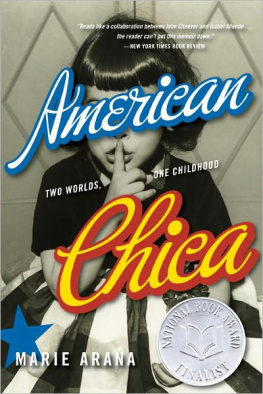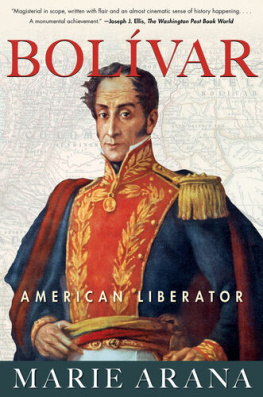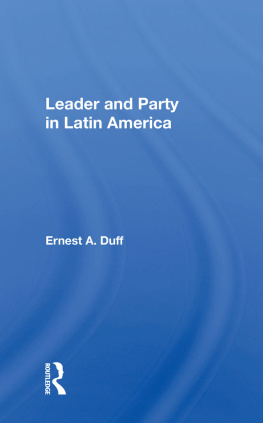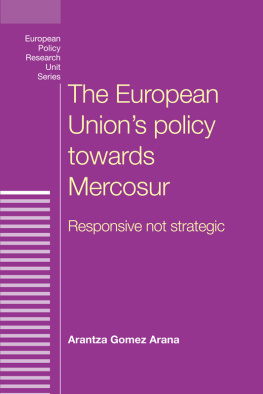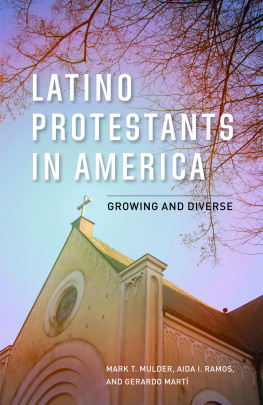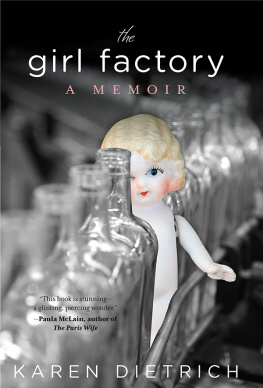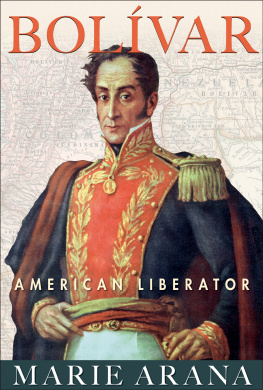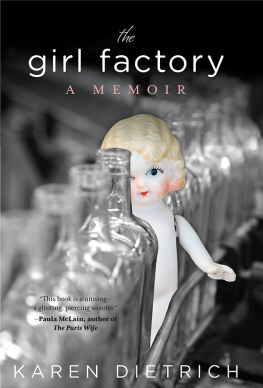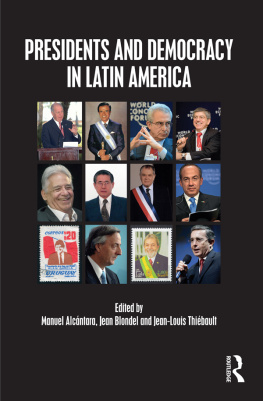Praise for
A MERICAN

C HICA
Two Worlds, One Childhood
One of the many reasons the reader cant put this memoir down is the authors impressive command of her craft [displays] virtuosity in the storytellers traditional gifts: spareness, clarity and a passion for allegory. The New York Times Book Review Full of larger-than-life characters and stranger-than-fiction situations delightful. The Washington Post An unusual mix of tone and voiceclose and distant, ironic and passionate, deeply spiritual and downright funny seems right out of Joseph Conrad. The Philadephia Inquirer

An engrossing plot, insightful cultural reflections, and well-crafted prose [Arana] shares the tale of her own family with wisdom and compassion. The Miami Herald This memoir is worth reading because it transcends self-interest and reveals the world beyond the writer. Its tone is sophisticated and amusing as it captures the nuances of relationships in two clashing cultures. Houston Chronicle Marie Arana blends a journalists dedication to research with a style that sings with humor. Publishers Weekly
(starred review) Reads like a novel tells a fantastical, spellbinding tale. The Atlantic Monthly [A] delightful book in the passionate telling, in the clever remarks, in the elegant style. American Chica is a fascinating blend of memoir and meditation. International Herald Tribune

Within this winning portrait of a bicultural childhood are a host of notable characters. A rich and compelling personal narrative. Kirkus Reviews Arana is like [a] bridge. She is North. She is South. She is both worlds. She is neither. And for all the dichotomy, her life is richer than most. The Advocate (Baton Rouge)


Table Of Contents
To my parents,
Jorge Arana Cisneros
and Marie Elverine Clapp,
who taught me that there are
two sides to my America,
and two Americas in this world.
I am, seeing, hearing,
with half my soul at sea and half my soul on land,
and with these two halves of soul I see the world.
Estoy, mirando, oyendo,
con la mitad del alma en el mar y la mitad del alma en la tierra,
y con las dos mitades del alma miro el mundo.
(Pablo Neruda)
P ROLOGUE

T HERE IS LAUGHTER. There is the sharp report of a slamming door and the staccato of high heels crossing the ceramic tiles of the atrium garden. There is the reveille shout to the servants quarters, the slap of sandals making their way to the animal pens, the skrawk of chickens as they are pulled from their cages, one by one, into the ink of night. It is three oclock, before the light of day.
I rub the sleep from my eyes, swing my legs over the side of my bed until my toes touch the llama rug, and then sniff the air of a morning (like all my mornings) redolent of ripe bananas, raw sugar, rumand the sharp, ferric odor of freshly drawn blood.
I cross the room, hoist myself onto the window ledge, pull back the heavy wrought iron, and lean out into the dark. The second-floor vantage offers me a rich display of the courtyard below. My mother is floating into view, her green dress billowing like a gossamer wing; her long, gold hair throwing light like a tungsten filament; her all-American, Hollywood face alive with expectation. At her side is my Peruvian fatherblack-haired, handsome, smiling and shouting Spanish over his shoulder, waving a bottle in his fist as if he were a carnival barker on opening day. His friends spill in behind them. Through the kitchen window I see the cook, yawning and plucking feathers from a chicken, letting the blood ooze from its neck into the frying pan for an early-morning sangrecita. I do not read omens in that. I do not yet know about signs.
My parents are young. It is their moment. Every marriage has one. When love seems infinite, the road feels free, and nights trip festively into day.
I was only four, but life had already had upheavals. The year I came into the world, five major earthquakes shook Peru. By the time I stood at that window, Id lived through eighteen. I cannot recollect any one of them. Off in a geologists lab, a needle was dancing, wild, registering one disaster after another.
Three days before I dangled my head into that courtyard, a quake ripped through the Peruvian seaboard, registering almost eight points on the Richter scale. It started shortly after five in the afternoon. The men were at work, the women in kitchens, their children at play. Where was I? The entire population of our hacienda must have heard the rumble beneath, felt the waggle in the stomach, seen concrete slabs wrench loose and skitter across ground. Across, then up, in fragmentsbelching gray dust. Walls usually rip before a mind can factor it, roofs fall, babies hurl through air.
I know it happened only because the World Data Center for Seismology tells me so. Earthquake, December 12, 1953, South America: Latitude 4, Longitude 80. Magnitude, 7.8. Displacements: thousands. Deaths: severe.
Shaky days. Yet all I can recall of them is a predawn tableau, my mother and father bursting into our garden with joy.
As I grew older and learned to register the ground beneath my feet, I saw that my parents marriage was shot through with fissures. Something like earthquakes would comegeologic upheavals, when the foundations that underlay their union would rattle with dislocation and longingbut now, just now, in the eighth year of marriage, with three children upstairs and my fathers engineering career in ascendancein that quick freeze frame before dawnthe gulf between them did not matter much. They were full. They were one. And I, hovering above their world, was seamless and faultless and whole.
A South American man, a North American womanhoping against hope, throwing a frail span over the divide, trying to bolt beams into sand. There was one large lesson they had yet to learn as they strode into the garden with friends, hungry for rum and fried blood: There is a fundamental rift between North and South America, a flaw so deep it is tectonic. The plates dont fit. The earth is loose. A fault runs through. Earthquakes happen. Walls are likely to fall.
As I looked down at their fleeting radiance, I had no idea I would spend the rest of my life puzzling over them: They were so different from each other, so obverse in every way. I did not know that however resolutely they built their bridge, I would only wander its middle, never quite reaching either side. These were things I was slow to understand.
I see such childhood moments in sharp relief now. The past comes slamming up like rock through earth, brought there by sights and sounds, sheer happenstance. Aftershocks, they are. One shivered through not long ago, on a winter afternoon as I lazed in the company of a friend.
She was a rain-forest woman. Shed never seen cleared land until the year before I knew her, when she stepped from the jungle onto a patch of dirt where a helicopter sat waiting to lift her out. She had never seen a road, a roof, a wheel, a knife. She was an Amazon nomad, a Yanomama, one of the fierce people. Spikes pierced her face. She was not used to possessions. There had been little reason to carry thingsa string of beads, a sharpened rock, at most. No need for clothes. No need for walls to house them. Bed was a hammock of vines. But there came a day when an anthropologist from Philadelphia pushed through the undergrowth to tell her he had come to study her language and ways. Before her sixteenth birthday, he had made her his wife, given her three children, taken her out in that helicopter, back to his New Jersey home.
Next page
